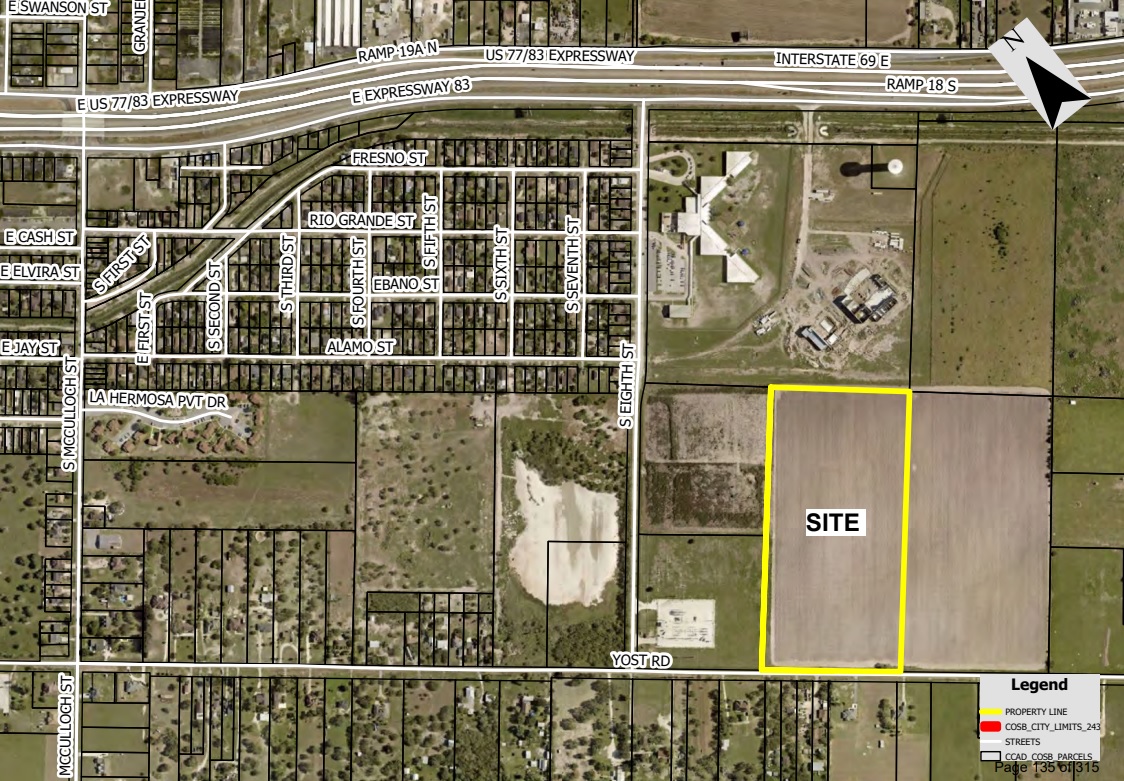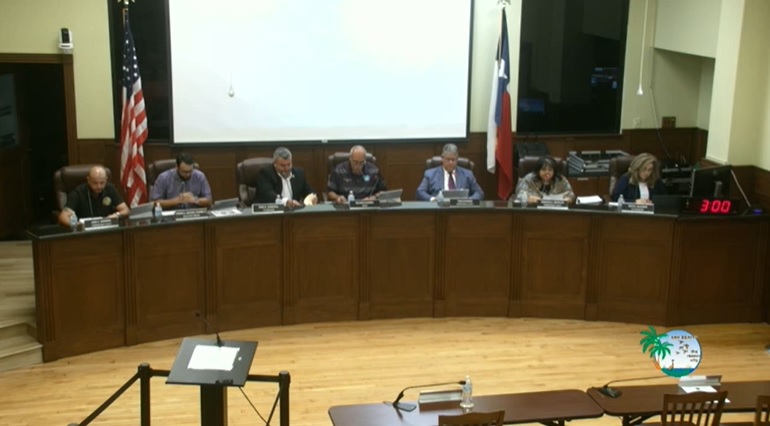|
Only have a minute? Listen instead
Getting your Trinity Audio player ready...
|

SAN BENITO — More than a year after the city’s past commission approved plans to build the city’s first battery storage plant next to a school, commissioners have rejected a developer’s proposal to open an operation at the same site.
So far, Stella Energy Solutions, a Woodlands-based company, hasn’t proposed building a plant storing massive lithium iron phosphate batteries, part of an evolving energy production industry shoring up the region’s electric grid, at an alternative site.
“We’re open to other potential locations as may be presented to us,” City Commissioner Tom Goodman said Thursday.
About two years ago, the city’s past commission, amid no opposition, granted a company a conditional use permit to build a battery storage plant near Dr. Raul Garza Elementary School off Interstate 69, requesting the developer return to the board in the next five years, officials said.
But now, officials are requesting that company consider building its plant on a site in an industrial area.
Last week, facing residents’ opposition, commissioners denied Stella Energy Solutions’ request to build a 9.9-megawatt battery storage plant near the school, located near a neighborhood.
“If something, God forbid, was to happen — an explosion — would we have the capability to do anything about it?” Commissioner Deborah Morales said during a Sept. 3 meeting, referring to city leaders’ questions posed to fire department officials. “The response was, ‘no.’ So that to me, right there, is a major factor.”
During a presentation, Brian Yarborough, representing Stella Energy, responded to residents’ concerns as he proposed building a 9.9-megawatt battery storage plant, made up of nine 22-foot-long containers packing lithium iron phosphate batteries, near the school.
The company picked the site based on its proximity to an AEP Texas electrical substation, he said.
“We certainly wouldn’t put it next to a school if there were any possibility foreseeable that it could be a danger to any student,” Yarborough told commissioners. “To date, the lithium iron phosphate batteries that we use in our projects have had no accidents. The explosions, the fires, the thermal runaway that we’ve seen has been with a different chemistry entirely.”
Yarborough compared the make up of the massive batteries to that of cell phone batteries.
“The batteries do not have any pollutants,” he said. “It’s just like your cell phone battery. It’s not putting out radiation, it’s not venting, it’s not using water, it’s not released into the groundwater.”

Meanwhile, the company’s battery storage plants include federally approved fire suppression systems, Yarborough said.
“As far as controlling the fire, we have fire suppression systems in place that are governed by the National Fire Protection Agency,” he said. “All the projects are designed, manufactured and operated to those guidelines and any guidelines or FPA standard.
During the last five years, the company’s built 20 energy distribution plants while developing 10 transmission projects, Yarborough told commissioners.
As South Texas booms, its growth continues straining the state’s electric grid, he said.
“We’ve been developing these sites in Texas for the past five years in a lot of different communities, by houses, by churches, by schools,” Yarborough said. “The reason that we’re coming to San Benito for a project is because this is where the energy needs are. In South Texas, we are experiencing load growth, growth in communities, electrical demand, more electric cars, a lot of solar and wind, and that’s driving these projects to become a critical piece of the ERCOT system.”
In the last two years, Harlingen commissioners have approved three plants storing crystallized lithium-ion batteries, including a 100-megawatt battery storage plant on farm land off Loop 499 and two smaller plants off West Lincoln Avenue.



